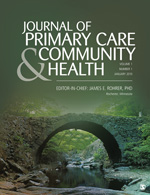
Before we present this week’s Weekend Reads, a question: Do you enjoy our weekly roundup? If so, we could really use your help. Would you consider a tax-deductible donation to support Weekend Reads, and our daily work? Thanks in advance.
The week at Retraction Watch featured:
- ‘Tortured phrases’, lost in translation: Sleuths find even more problems at journal that just flagged 400 papers
- Award-winning nursing researcher’s paper retracted for ‘failure to acknowledge the contribution of other researchers and the funding source’
- Two years: That’s how long it took a PLOS journal to flag a paper after a sleuth raised concerns
- Journals retract papers following publication of university investigation by Retraction Watch
- Two Texas studies on COVID-19 retracted because ‘previously approved study protocols appear to violate IRB guidelines around prisoner research’
- When a retraction notice leaves out important details: COVID-19, prisoners, and an IRB
Our list of retracted or withdrawn COVID-19 papers is up to 147.
Here’s what was happening elsewhere (some of these items may be paywalled, metered access, or require free registration to read):
Continue reading Weekend reads: Former dean sent herself threatening letters; what it costs to sue for defamation; what a highly cited paper is worth






